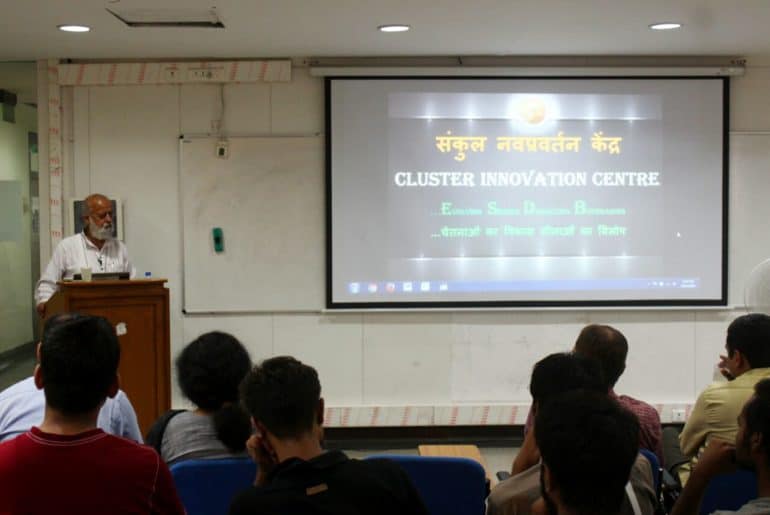“The tour was awesome. I never had an opportunity to learn so much about kings and their history,” said an elated traveler after his visit to the famous Humayun’s Tomb. The tour guide replied back and thanked the traveler.
This conversation seems pretty normal, except for the fact that this communication took place in sign language, captured on video and posted on the Facebook page of a Delhi University based startup that is striving to make a difference in the life of deaf people.
Deaf Com, a company that is housed in the incubation centre of Cluster Innovation Centre (CIC), is led by a bunch of fresh graduates who aim to change the life of the deaf through technology. “We have launched an app that can help deaf and mute people across the country to access famous monuments through their smart phones,” says Manish Narayan, a historical tourism graduate from CIC who is one of the founders of the company.
Often people with a disability are presumed to be a liability by many, who forget that we all are disabled in some or the other sense.Having worked on projects on tourism and sign language in their undergraduation days, Manish and his mates have organised several tours across major tourist attractions across Delhi for deaf and mute people. “The best thing about technology is that it can break the barriers which were earlier unthinkable of,” he says pointing out that the app ‘SignMyTour’, which is a part of series of apps that the company plans to launch, has the option of displaying subtitles in various languages along with sign language communication. This will not only help out disabled people but also help other people to self-guide themselves around the monuments without paying any professional guide. The app which already has most of the heritage sites of Delhi plans to add more in the coming days.On being asked why he chose this idea for a startup, Manish points out to the picture of one of his recent tours and says, “Do you see those smiles in the picture? They are worth millions to me.”
You can like their facebook page.
Download there app here.
Srivedant Kar
[email protected]
Image Credits: Manish Narayan












